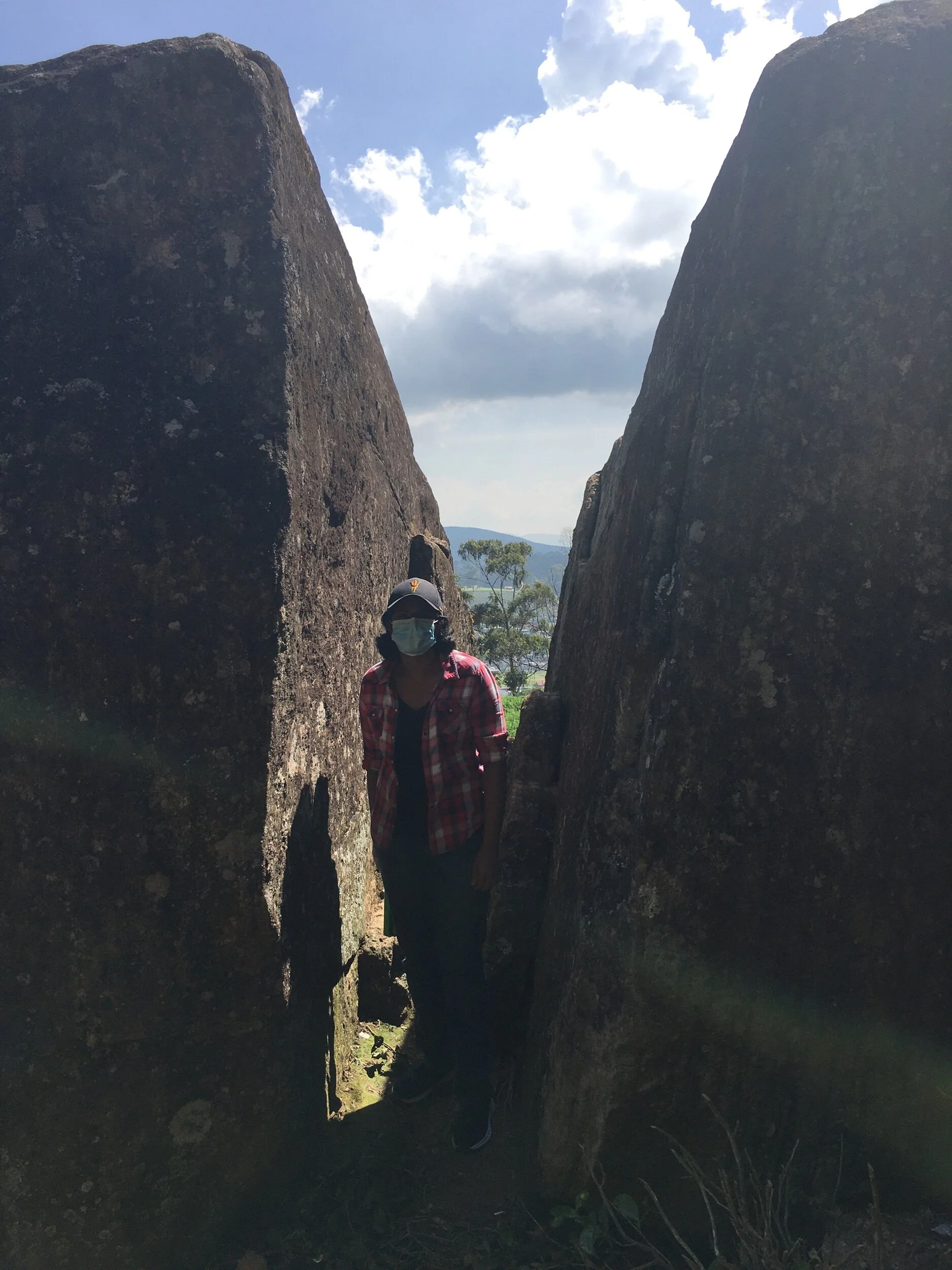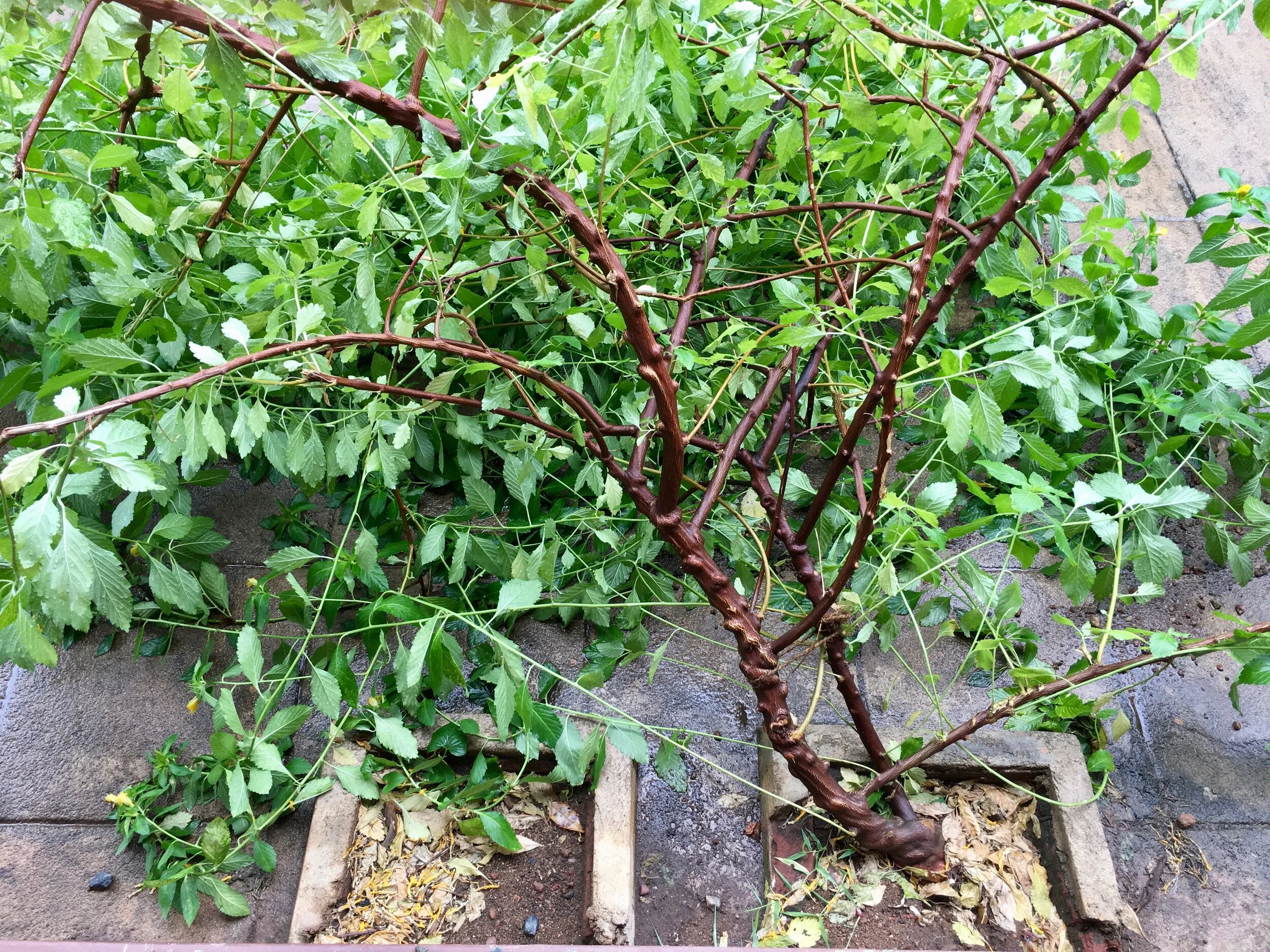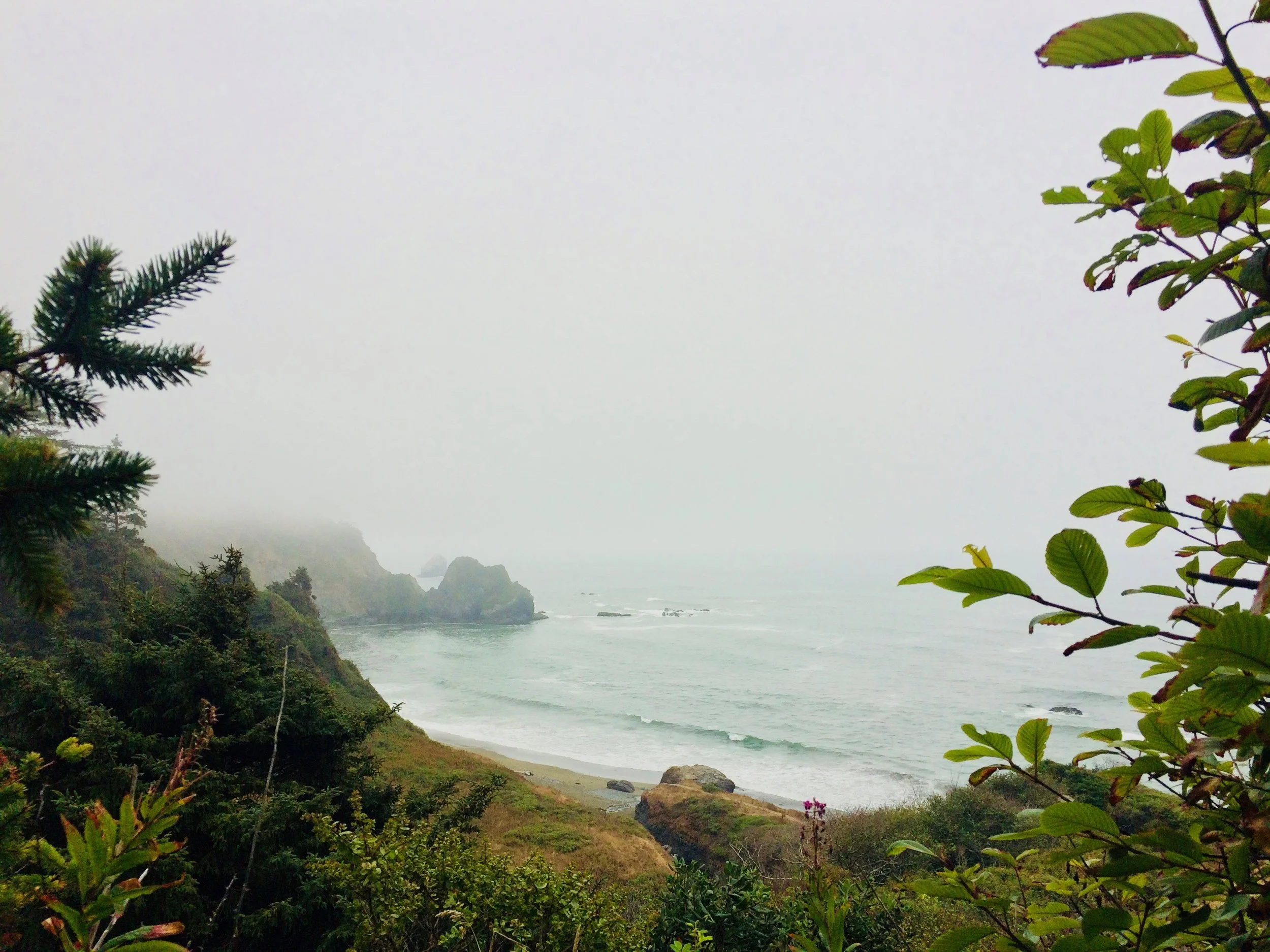Speeding down Marine Drive the ocean wind brushed against my face as cars zoomed past. I felt the sea salt breeze rush against my skin. It felt cool. The heat from the mid afternoon sun warmed my hand as it stuck slightly outside the exterior of the tuk. I felt my hand burn. It felt hot. Seeing the ocean after several months made my heart race. I felt it beat against my chest. It felt like living.
In a moments respite running errands in an unusual day off my mind felt calm as my body felt the elements. Visual senses were stimulated. The sky was a clear, determined blue. The road ahead was a darkened tar gray bathing in the tropical heat. The imperialist-created train tracks running silently alongside us was a rusted brown. The ocean, magnificent as ever, was a blue-green sprinkled with diamond reflections. The beach continued receding as “progress” destroys it.
Surrounded by the concreteness of visible colors, my mind drifted to the intangible. What does color feel like? Why is it that only some of us will ever feel it? What have I gained by knowing what it feels like? What would life be like if I had never felt it and had never known it? Why do I pity those ardent believers of colorblindness?
It has been more than 900 days since I lived in a place where feeling brown was an everyday experience. Not to say that there haven’t been moments since then when those days of colored feelings have come knocking. But the feeling had been officially put away, left in the dust of airplane exhaust fumes. Filed away under a memory. Tragic in scope, yet informative nevertheless.
Passing by the ocean triggered the thought of how easily happiness had come once brown stopped being felt daily. It’s hard to explain. Moving away from the homeland at the age of 11 broke ties of connectedness. In search of new ties the status of other was never quite overcome. Brown became a lived experience, sometimes the only concrete feeling in a world of uncertainty.
How can I explain what brown feels like? Can I tell you about being told the only open restaurant on a Fourth of July was 20 miles away from town? Can I tell you about the looks people give when you walk into a public place as if they had never seen someone like you before? Can I tell you about not wanting to leave the house to go to the grocery store because the work week had tired the soul and starvation seemed preferable? Can I tell you about waiting in the parked car for friends to get to the restaurant and be seated before going in?
Can I tell you about what happened last week?
I’ve been designing lessons on social Darwinism and scientific racism for 14 year olds to understand the 20th century and the modern world. In a conversation with colleagues I proposed a project where we have students go out in society and find things that make connections to our lessons. That is, to find instances of everyday racism. A white colleague pointed out to me that “racism” as a word should be substituted for alternative words like “divisive” or “discriminatory.” As if those words are interchangeable. I calmly said nothing and went on feeling brown.
At the end of the week, another white colleague told me the assignment I had created for kids to explore race in today’s world was “wrong” because my examples showed “colorism” not racism. As if colorism fell from the sky. This time I spoke back. I asked him to define both words. He managed to mumble something for colorism. When I pushed for a definition of racism he said, “Judith, we don’t have time to get into that!” As if we weren’t literally talking about just that. Recognizing that he had decided to challenge me without knowledge, I explained that our discussion needed a starting point to dissect where our disagreements lay. He lost his temper. He raised his voice. Through the mask his face was changing color. I looked away. His right hand, sitting on the table next to his laptop, began to shake in fury. He said his wife who had “been to university here” said I was wrong too. I said while I respect her as a person she wasn’t a historian (without even touching on the fact that my PhD was earned because of my work studying the experiences of racialized communities!). He became quiet. I pushed on. I explained the difference calmly. I offered a definition critical race studies scholars often allude to, not as my own but as a starting point. I then told him how the examples showed racism, not simply “colorism.” He said nothing. I gave him a few minutes to calm down. He then suggested some stylistic changes. I agreed to appease.
But I’m no Chamberlain. In the face of a society that has ripped itself apart using a color line westerners may not recognize I will not stand by. Literal war criminals run the government elected to power by vast segments of a society where pointing out who is or has become “kalu” is casual conversation. I cannot even imagine the fear and trauma of minority communities struggling to find their places in a society that continues to exclude them. I will not be silenced or edited in the face of opportunities to highlight the violence. Feeling brown may have caused irreparable damage to my soul but it did not destroy it. I did not let it. I will not let it. I cannot let it. The heart demands action. As I calmly explained to my colleague after his temper tantrum, “I teach heart stuff.”
When the assignment was shown to students much older than the intended group, they welcomed it. “Finally!” was the universal sentiment. “Why couldn’t you have taught us when we were that age, Miss?” They responded to it because they live it. I know the language of my students because I listen to and feel their experiences. They will go on to live and work in a world organized by social Darwinism and perpetuated by those who have not engaged with race studies and proclaim their absolute commitment to colorblindness. Their accomplishments will be ignored. Their expertise will be denigrated. But worse of all they will encounter heartbreak. They will see sympathy in the face of supposed allies and fail to find fury and outrage. This absence will break their hearts to pieces. They will never forget. They might never forgive. I lived their future. They should know what to expect in a world where some people have to feel color.
That’s what brown feels like now.































